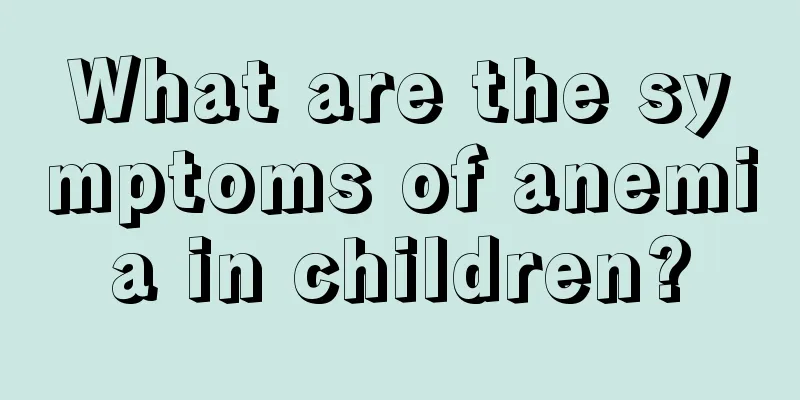What are the reasons why children don’t like to eat?

|
Nowadays, parents treat their children as precious and spoil them too much. Parents often run after their children when feeding them, which leads to many children being picky eaters and often not liking to eat. In addition, children may also not like to eat because they eat too many snacks or have gastrointestinal problems. Therefore, we need to find the reasons based on the child’s situation. The common reasons are as follows: 1. The beginning of autonomous consciousness: Children want to be in charge of their own affairs, so they will naturally refuse to be fed by their parents. This usually happens before a child asks to dress himself or take a bath. 2. Eating too many snacks: The child's mouth is always busy and the digestive system is constantly working, which can cause gastrointestinal dysfunction. Moreover, children prefer high-calorie sweets, such as chocolate, cake, etc., which will affect the satiety center and make it excited. Children will not be hungry and will have no desire to eat. 3. Irregular eating habits: The child's three meals are irregular and the meal times are different, which disrupts the gastrointestinal digestion pattern and makes him not want to eat at mealtime. 4. Excessive attention from parents: Too much is as bad as too little. This action made the child develop a rebellious mentality and refused to eat. Parents should relax about this. 5. The food is not to your liking: The food doesn’t taste good, or the dishes are monotonous and unvarying, and the children get tired of them. 6. Poor eating environment: Distractions during eating affect the excitation center of the food center in children's brains, such as when children eat while playing, or when parents tease or scold them from time to time. 7. Slowed growth and development: The growth rate will slow down and the appetite will also be affected. This usually occurs around the age of 2. 8. Physical discomfort: Feeling unwell causes poor appetite. In addition, if too many health supplements are taken, the gastrointestinal burden will be increased, and it may also cause children to lose interest in eating. 9. Zinc deficiency affects taste: If the body lacks zinc, the taste sensitivity will be reduced, which can easily lead to loss of appetite in children. You can observe the condition of the child's tongue coating. If the tongue is flat, has small bumps on the surface, or has a tendency to shrink, then it can be determined as zinc deficiency. 10. Unbalanced Nutrition: Feeding children too much meat, eggs and dairy products can damage their stomachs and intestines, leading to indigestion. 11. Others: Not enough exercise, slow metabolism; staying up late, lack of sleep, overwork, etc. |
<<: What is the reason for frequent urination in children?
>>: What are the reasons for itchy ears in children?
Recommend
What is the normal body temperature range for a 6 month old baby?
Many babies have low immunity, and some bacterial...
Three-year-old baby oral herpes
A three-year-old baby develops oral herpes, which...
Symptoms of heat stroke in young children
Heatstroke is a general term for the symptoms of ...
Treatment for babies who love to sleep
It is a common condition that babies love to slee...
Can children drink monk fruit?
Monk fruit is a traditional Chinese medicinal mat...
How to repair scars in children?
There are many reasons that may cause scars on ch...
Why does a five-month-old baby cry at night?
Many parents go to work with dark circles under t...
What causes white spots in baby's mouth?
Once some babies have problems, they need timely ...
What to do if your child talks back to you?
The situation in each family is different. Those ...
Is it okay for a newborn baby not to cry?
When babies are born, most of them will cry loudl...
What to do if your 2-year-old baby vomits in the middle of the night
If a two-year-old baby vomits in the middle of th...
What causes newborn babies to fart?
Newborns will fart uncontrollably after feeding. ...
What to do if your child has tooth decay
No one can ignore the important role that teeth p...
What to do if a girl has small breasts and what to pay attention to
Nowadays women all want to have a perfect figure ...
Will the baby's measles get better on its own?
Urticaria is a very common skin disease in both a...









